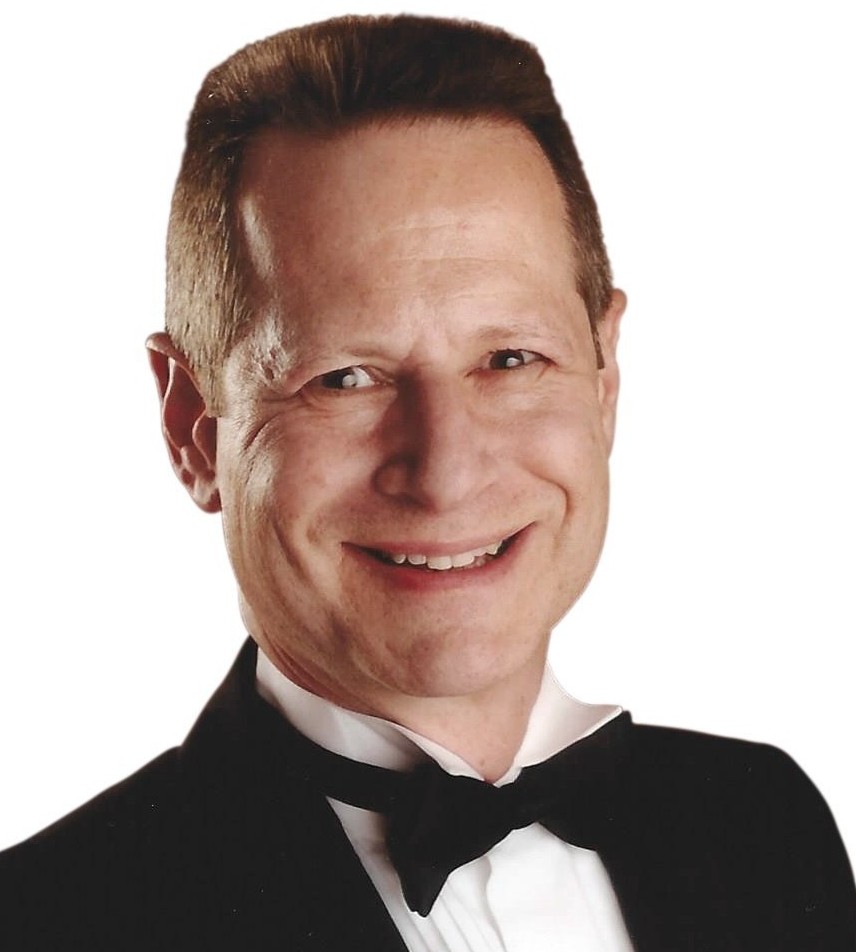
Knowing the differences between hearing vs listening helps you become a better communicator. Active listening is a major part of mastering communication.

“Every time we have a discussion, there’s complete alignment—100 percent buy-in.” It sounded too good to be true—and, as it turned out, it was.
I can distinctly remember the interview we conducted with an executive at the start of the pandemic. When we asked him about his process for getting buy-in from his team, the executive couldn’t wait to give an example. “During a Zoom meeting with my team, we had a particularly important decision to make. So, I went around to everyone and asked for a ‘thumbs up’ or a ‘thumbs down’ on my idea. Before they voted, I told them that, for me, this was definitely a ‘thumbs up.’”
“And how did that work out?” we asked him.
“Amazing—it was unanimous!” he said. “One person’s hand wavered a little bit, but in the end, it was ‘thumbs up’ as well. It was just incredible to see 10 people on my screen—all completely aligned.”
Needless to say, this wasn’t listening.
If the past year and a half has taught us anything, it’s that those days are over. Now we need to be more radically human—vulnerable, authentic, empathetic, aware. Or, in a word, graceful.
That aha moment came for me this week when I traveled cross-country and found myself in a hotel conference room full of people for the first time in 18 months. It struck me that so much of what we used to do by rote had become oddly unfamiliar—even packing my bag, shaking hands, or sitting in that conference room. It truly felt like an out-of-body experience.
So, I turned to this room full of people—none of whom I’d met before—and told them what I was feeling. “It’s surreal, isn’t it?” Immediately, all 19 people in that room started nodding, smiling, and sharing their own experiences.
As the days have turned into weeks, the weeks into months, and the months into almost two years, what had been organic became inorganic.
Today, it’s about finding a new way—taking the best from the old world and bringing it into the new. For leaders, this starts with not simply hearing, but rather listening—particularly to what we don’t want to hear.
But if we only listen to people who look like us and think like us, then all we’re going to hear is … well, us. As David Dotlich, PhD, a CEO and Board advisor and a senior leader in our Consulting business, told me this week, “Today, the biggest gifts we can give others are our attention and our willingness to listen. We’re telling others, ‘I see you, I hear you.’”
Sure, listening takes time—that most precious of commodities. But the payoff can be immeasurable. When people are listened to, they’re motivated. And when they’re motivated, they feel validated. And when they feel validated, they outperform.
Here are some thoughts:
• Listening for the “why.” I received a call this week from a friend wanting to discuss his 27-year-old daughter who had just changed full-time jobs for the fourth time in five years. Now, just two weeks into her latest job, she was interviewing with yet another company. Like so many career nomads, she was tempted to make a leap, hoping to land somewhere, anywhere. When I asked why she was changing jobs so soon, she replied half-jokingly, “Because I could.” But could may not mean should. So, I asked her, “What’s your why?” She paused. “My what?” Now we were getting somewhere. “Your why is your purpose, your intrinsic motivator—the reason for making this decision,” I explained. She then let down her guard and proceeded to give me a window into her why: remote everything, every day feels the same, disconnected, missing being with people…. But she was only two weeks in and there was so much she could do where she was: connect with coworkers, network across the company, learn all she could, and shape—not just adapt to—the culture. In the end, instead of running away after 14 days, she decided to stay. The difference was her why—finding it and someone to listen for it.
• “You’re breaking up.” I’ll never forget being in the back of that room years ago. A meeting was going on, and a person asked a sincere question, albeit not something that needed to be addressed immediately. The leader quite literally dismissed the question, saying, “That’s not what we’re talking about.” It was like the air was sucked out of that space—everything stopped. But that leader seemed completely unaware of the impact on every person. At that moment, whether he knew it or not, the connection he was trying to build with colleagues was breaking up. No one would speak up and no one was listening. The antidote is grace. Make it safe for others to tell their truth.
• Explain, express, explore. Today, we need more horizontal leadership, building connections and communities. This is not a thumbs up, thumbs down world—it’s all about “tell me more.” As Dominique Virchaux, our president of South America, told me this week, “It doesn’t even matter if our answers are ‘yes’ or ‘no.’ Just not ‘but.’” Nothing shuts things down faster than that word. When one person floats an idea or asks a question, then another jumps in with “but,” what comes next is always negative. Invariably, it leads to disagreement—not constructive conflict. Replacing “but” with “and” is an elevator—raising the horizon to build community.
The difference between hearing and listening is comprehending. After all, knowledge is what you know, wisdom is acknowledging what you don’t know. Listen, learn, and then lead.
Let’s talk, schedule a call: www.calendly.com/clifflocks
Contributor: Gary Burnison, Korn Ferry CEO and Cliff Locks, Investment Capital Growth, Managing Director and Executive Coach
Blog Post: Successful leadership depends on how we manage paradoxes
Are you looking for a gift for yourself, friends, family, or colleagues? I love giving Audible by Amazon as a gift. Audible online audiobook platform is where books are read to you while driving, relaxing at home, or on the go. Use any smartphone, tablet, and computer and turn it into an excellent learning resource. (Click on the Amazon logo below to get started and search for Audible.)

Cliff Locks is a trusted mentor, confidant, and advisor to CEOs, C-Level Exec, and high-potential employees to help them clarify goals, unlock their potential, and create actionable strategic plans.
Available to join your Board as a Certified Master Professional Board of Director and Advisor.
I am a trusted mentor, confidant, and advisor available by Zoom and by phone to be your right-hand man, who will make a significant contribution and impact on your way to success.
As a Trusted Mentor, Confidant, and Advisor, I support you, along with your company’s strategic and annual operating plan. This plan may include marketing, sales, product development, supply chain, hiring policies, compensation, benefits, performance management, and succession planning.
Most successful leaders enjoy talking to someone about their experiences, which is why most develop a close relationship with a Trusted Confidant—a person with whom they feel free to share their thoughts, concerns, and ideas without fear of sharing too much or being judged by the people they lead, or their colleagues and superiors. I am a sounding board who will help you to better develop and see your ideas through to fruition.
The most effective Executive find confidants who complement their strengths and sharpen their effectiveness. Bill Gates uses Steve Ballmer in this way; Warren Buffett turns to vice chairman Charlie Munger. In the end, both the Executive and their organizations benefit from these relationships.
As your trusted confidant, I am always by your side, holding your deepest secrets and never judging. Everything discussed is held in complete confidence.
What many executives feel is missing from their busy life is a trusted business person who understands the holistic complexity of both their business and personal life.
I strive to provide solid financial, business, and family expertise and serve as a dispassionate sounding board, a role I like to call “Executive Confidant.”
By holding a safe place for the Executive to work on life path issues as well as direction, I repeatedly see remarkable benefits as personal values become integrated with wealth and family decisions, enhancing a more meaningful life.
As an Executive Confidant, I welcome a confidential conversation about the most important issues facing the business leader, including:
• Strategic planning toward your visions of success and goal setting • Operations, planning, and execution • Career transition • Retirement • Legacy • Kids and money • Marriage and divorce • Health concerns • Values and life purpose • Vacations • Mentoring & depth of the executive bench • Succession planning
When I do my job well, I facilitate positive action in both your professional and personal life. This consistently has a positive benefit on impacting people within the sphere of your influence.
The job of an Executive can be lonely. For various reasons, confiding in colleagues, company associates, family members, or friends presents complications. Powerful, successful, and wealthy individuals often isolate themselves as a protective reaction because of their inability to find people they can trust and confide in.
Successful people are often surrounded by many people, yet they insulate and isolate themselves to varying levels of degree. This isolation factor is not often discussed in the same context because the assumption is that success and wealth only solve problems. The false belief is that it does not create more problems, when, in fact, sometimes it creates a unique set of new challenges. Success and wealth do not insulate you from the same pitfalls that the everyday person faces. It may give you access to better solutions perhaps, and that is what I can help you achieve. Financial business success can create unique vulnerabilities, often overlooked as most people feel that the “problems” of the wealthy are not real-life problems.
The Executive Confidant can be particularly helpful when:
• Aligning life priorities with the responsibilities of wealth. • Wanting more meaning and purpose in life. • Desiring a candid and experienced perspective. • The answers often come from within, and we cannot arrive at them easily. • Clarity often comes into focus, with skilled questions and guided discovery. The right questions can be the first step in achieving ideal outcomes.
Who can you turn to when you need to find clarity? Who is your “Executive Confidant”?
Referrals to team members or family members are always welcome.
Investment:
One-to-One – Individual payment: Strategic Coaching: $295 per month (weekly for 30 minutes to 1 hour depending on the depth of our conversation Zoom meeting).
One-to-One – Corporate payment:
i. Coaching & Leadership Development: $600 per month engagement (weekly 1 hour Zoom meeting).
ii. One-to-One Executive Coaching and Mentoring: $600 per month engagement (weekly 1 hour Zoom meeting).
iii. Increasing Top Team Performance and 1:1 Mentoring Sessions: $600 per month engagement (weekly 1 hour Zoom meeting).
iv. Planning New Futures for Senior Executives: $600 per month engagement (weekly 1 hour Zoom meeting).
Team coaching:
i. Enhancing Boardroom Effectiveness & Executive Impact Group: Starting at $15,250 per annual engagement.
ii. Strategic & Operational Planning/KPI Development: Starting at $25,500 per annual engagement.
iii. Productivity Assessment & Profitability Improvement: Starting at $25,250 per annual engagement.
iv. Sales Channel and Product Development: Starting at $25,250 per annual engagement.
v. Energy and Sustainability Efficiency Initiatives: Starting at $18,500 per annual engagement.
Board of Directors or Board of Advisors:
- Private company:
- $25,000 to $45,000 per year, depending on the number of Board and Committee meetings.
- Public company:
-
- Under $50M in revenue: $25,000 to $45,000 per year, per year, depending on the number of Board and Committee meetings.
- Micro: $50M – $500M in revenue (click for annual compensation)
- Small: $500M – $1B in revenue (click for annual compensation)
- Medium: $1B – $2.5B in revenue (click for annual compensation)
- Large: $2.5B – $10B in revenue (click for annual compensation)
- Top 200: Largest 200 in the S&P 500 (click for annual compensation)
-
Email me: [email protected] or Schedule a call: Cliff Locks #WSJ #privateequity #boardmembers #corporateleadership #IBD #CEO #CFO #COO #BoD #CXO #management #privateequity #PE #hedgefund #limitedpartners #LP #venutrecapital #VC #ethicalbusiness #directors #corporategovernance #accountability #integrity #ethics #corporateleadership #leadership #nonexecutivedirector #nonexec #boarddevelopment #leadershipfirst #mentoring #thoughtleadership #managementdevelopent #mentorship #leanmanagement #leadershipdevelopment #business #leanstartups #businessstrategy #InvestmentCapitalGrowth
[gravityform id=”1″ title=”true” description=”true”]

